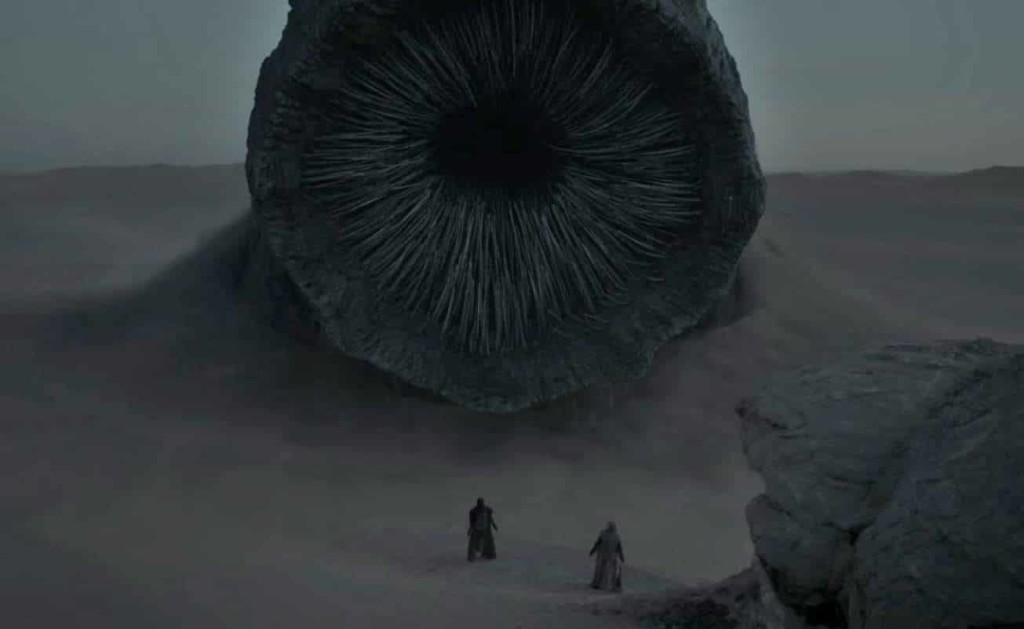Genre: Sci-Fi
Premise: The leaders of a planet journey to a new planet in a quest to gain control of a rare powerful substance called “spice.”
About: Dune is one of the biggest gambles in movie history. A 250+ million dollar production based on a 50 year old novel catered heavily to adults. It is dense and heady, two words studios detest. Nevertheless, they gave the film to “Blade Runner: 2049” director Denis Villeneuve and stacked it with the best cast this side of Once Upon a Time in Hollywood. Oscar Isaac, Timothee Chalamet, Zendaya, Jason Mamoa, Josh Brolin, Dave Bautista. The film was supposed to come out next month. But they were forced to push it to next fall due to the Corona virus. The original adaptation was done by screenwriting superstar Eric Roth. In a strange Hollywood twist, Jon Spaihts left a separate Dune TV series to write the final draft of the feature film.
Writer: Eric Roth and Denis Villeneuve (current revisions by Jon Spaihts) (based on the novel by Frank Herbert)
Details: 134 pages
My oh so conflicted Dune heart.
There isn’t a property I haven’t wanted to like more than Dune. A serious sprawling sci-fi fantasy story is something I should theoretically love. And yet every time I’ve tried to read the novels, I fantasize about getting a lobotomy.
But here’s what I’m hoping with the Dune script. I’m hoping that Roth and Spaihts have stripped away all of that boring muckety muck from the novel so that we get a cool stripped down enjoyable story. I don’t need 50 pages of backstory on how Greta Mogf’flox came to find her love for the art of noxela, that of the space ballet.
Give me a clear story, make it entertaining, and I’m in. Did that happen?
16 year old Paul belongs to a House that, I think, runs his planet. But Paul, along with his father, Duke Leto, and his mother, the prostitute Lady Jessica, only care about one thing – the SPICE! The spice is, essentially, a drug that allows for you to live a heightened life. It makes you healthier, smarter, even supernatural, since some people can use it to see into the future.
The problem is that the spice only grows on one planet – Arrakis. So all the surrounding planets come there to mine it. This is where things get confusing so I apologize if I get this wrong. I believe the people of Arrakis extend an invite to Duke and Paul, to come have a bigger controlling interest in the spice. They’re actually inviting a lot of Houses from neighboring planets there, including the House of Harkonnen, led by Duke’s rival, the 600 pound BARON VLADIMIR HARKONNEN.
Once they get to the planet, everything seems cool, if a little tense. When Duke and Paul learn that some spice miners are stranded in the desert with a potential giant Dune worm after them, they grab a hover ship and go save them. This is where they learn that mining spice is dangerous. At any moment a super worm can eat you up. I guess they like spice too!
Eventually, Paul, Duke, and Lady Jessica, learn that they’re being played by Baron Harkonnen! Harkonnen throws Paul and Jessica out in the middle of the desert while torturing Duke. He wants Duke to know that he’s eliminating his bloodline so that the Harkonnen can be the sole rulers of the spice! Talk about a spicy offer.
Back in the desert, Paul and his mom must avoid giant worms in the middle of the night. They barely survive until their clan’s top warrior, Duncan Idaho (Jason Mamoa), rescues them. They must get back to the city to stop the Harkonnen (along with the evil Emperor’s bloodthirsty army) from turning the planet of Dune into their own personal spice playground. Will they succeed? No one knows except for Timothee Chalamet!!!
I’m going to be straightforward with you here. This movie is in a LOT of trouble.
The issue is simple. It’s boring. At least for the first half of the movie it is. From there, it has some moments but mostly stays boring.
This was always my worry with Dune. I could never get into the book because I’d get bored quickly. The 1984 movie version of Dune was also boring. And now we have this film, which, even with the talent in front of and behind the camera, is stuck drawing from the same source material. So you have to wonder, is this story just boring?
Maybe we can answer that by asking what the screenwriting definition of boring is. Well, boring is in the eye of the beholder, of course. But there are certain concepts and setups and narrative choices that lend themselves to a more objectively boring experience. And Dune checks a lot of those boxes.
One, you have a ton of mythology and world-building. The more mythology there is, the more exposition you’re going to need. That means characters explaining things. The more your characters are explaining things, the less they’re ACTING UPON THINGS. Movies are about character ACTIONS. Not about WHAT THEY SAY. So if you’re doing something that’s keeping your characters from acting upon the world, you’re keeping them from engaging in a good story.
Next, you have a plot that moves slowly. There aren’t a lot of significant plot beats in your script. We cut from scene to scene without much forward movement in plot. Another way to put it is, after reading the tenth scene, a reader shouldn’t feel like they’re no closer to the purpose of the story than after reading the first scene.
Next, you have a lot of SAT scenes (Standing Around Talking). You guys know much I hate SAT scenes. It’s nearly impossible to keep an audience engaged when the only thing characters are doing is standing around talking to each other. And that’s the first 15 scenes of this script. It’s one SAT scene after another.
The only way this is going to work for audiences is if you’re one of those people who really loves deep rich mythologies. To you, it’s fun learning about this world. You don’t need a story to keep you engaged. But that’s a small percentage of moviegoers. Most moviegoers want a story.
Look no further than Dune’s fantasy movie cousin, Lord of the Rings. That film does it right. It sets up the mythology but it establishes the stakes, what the goal is, the journey ahead, how dangerous it would be, who needs to be involved, all very quickly. We then move into the journey, which ensures that the plot is always bopping along.
The first action scene in Dune doesn’t happen until the mid-point and I couldn’t even tell you what it was about. They hear some miners are in trouble. So they race out and save them. Encounter a sand worm. And survive.
Um, okay. That’s a scene. But here’s the problem. When they come back from that scene, EVERYTHING IS EXACTLY THE SAME. The story hasn’t moved forward. All that’s happened is they went off on this little side quest to save some people and now it’s back to bickering with the bureaucrats. Why am I 65 pages in to a 130 page script and I still don’t know the goal of our main characters??
Once Barron Von Fatso starts deceiving Paul and his family, things get a *little* more interesting. But not much. At least someone is finally acting (it’s a villain instead of a hero but, hey, something is better than nothing). But this plotline had its own issues. For example, we’re told from the start that Barron is up to something. So his deception was the most predictable twist ever.
Then, the plot is still static. Everything is happening in this one 50 mile range. Nobody’s going anywhere. We’re all standing around, ordering things, yelling at each other, people are sent out to the desert, they come back in from the desert. Contrast this with Star Wars or Lord of the Rings or even yesterday’s film, Love and Monsters. We’re moving forward in these movies. Dune, this purportedly giant universe, keeps all its characters in this tiny little area and has them play hide and seek with each other.
Ultimately, Dune is doomed by an old Scriptshadow mainstay. Burden of Investment. A high Burden of Investment is when the amount of information the reader is required to remember so outweighs the reward of remembering that information, that the experience doesn’t feel worth it. Or a more simplistic way to put it is, when a screenplay feels more like work than play, you’ve failed.
I will always respect the world-building that Frank Herbert did. I know how long that takes. But you still have to know how to tell a story. I’m not convinced that Herbert knew how to do that. Which is why everyone has such a tough time adapting this material.
[ ] What the hell did I just read?
[x] wasn’t for me
[ ] worth the read
[ ] impressive
[ ] genius
What I learned: Side-quests. Avoid “side-quests” in screenplays. They may be fun to do in video games. But if you’re sending your characters off on a 15 page sequence (12% of your entire movie), it better move the story forward. Here, we get Paul and his father going to save some stranded miners. Sure, it’s an okay scene. Yay for our heroes being heroic. But it didn’t move the plot along one inch. Contrast this with Obi-Wan and Luke going to Mos Eisley. That sequence moves the story forward because they’re trying to find a pilot in order to get to Alderaan. It actually gets them one step closer to their final goal. Maybe that’s why this script is a big fat fail. There’s no goal!!! Or, if there is, it’s buried underneath so much gobbledy-gook that only hardcore Dune lovers have put in enough effort to figure it out.



